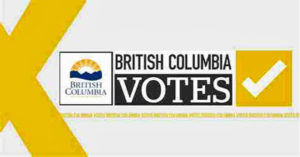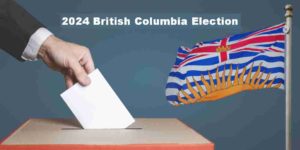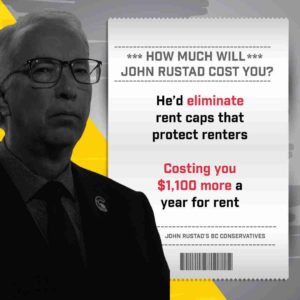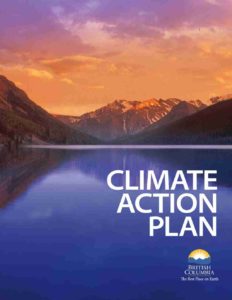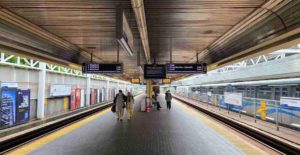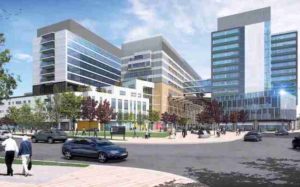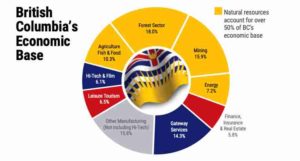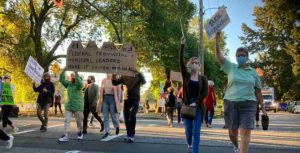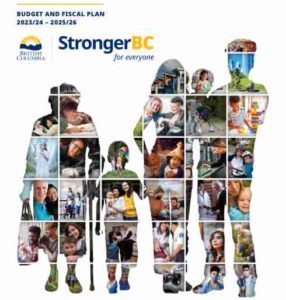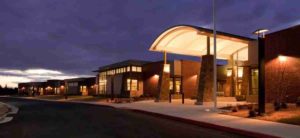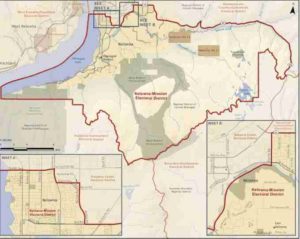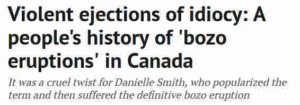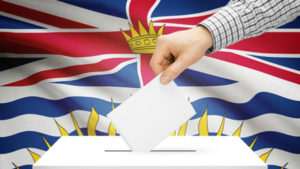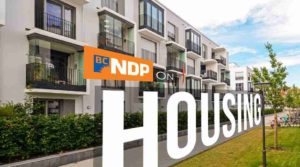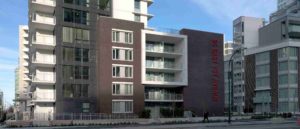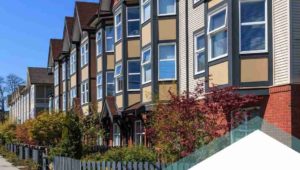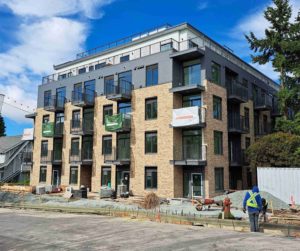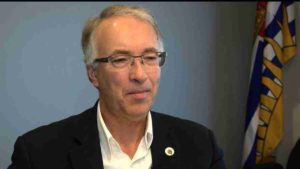
In the 2024 British Columbia provincial election there are 93 ridings, six more than in the 2020 B.C. election, thanks to the redistribution recommendation of the Independent Electoral Commission which was charged to make voting in British Columbia fairer and more representative of the population of the province.
In British Columbia, there are 25 ridings in the Interior (the Okanagan and the Kootenays), 16 ridings across Vancouver Island, and 52 ridings across Metro Vancouver, reaching out into the Fraser Valley, and extending to Chilliwack.
In total, there are approximately 30 ridings that will tell the tale on Election Night, October 19th. The outcome in these ridings will determine whether incumbent Premier David Eby’s New Democratic Party will hold onto government, or will be replaced by John Rustad’s insurgent Conservative Party of British Columbia.
Today, VanRamblings will focus on the Vancouver Island ridings in contention.
For the past couple of provincial elections Vancouver Island has proved to be a New Democratic Party fortress, with the party winning every riding on the Island. Following the October 19th election, we could witness a return to the days when a handful of Socred / B.C. Liberal candidates held sway in five or six Vancouver Island ridings.
VanRamblings will publish three additional riding analysis columns covering the Interior and the North, a good portion of Metro Vancouver (focusing on Vancouver / Burnaby / Richmond / Delta / New Westminster / Surrey), and a final riding by riding analysis column covering the Tri-Cities, the north side of the Fraser River, Langley, and into the Fraser Valley through to Chilliwack.
Today, VanRamblings is focused on the Vancouver Island ridings that could allow David Eby to hold government, or thrust John Rustad into the Premier’s chair.
Vancouver Island | Five Ridings in Contention in Election 2024
![]()
(Click on the underlined text for more information on the candidates running in the riding)
- Victoria-Beacon Hill . Held by former B.C. NDP leader / Finance Minister Carole James from 2005 to 2020, upon resigning for health reasons, popular Victoria City Councillor Grace Lore ran in her stead in the 2020 B.C. election and won. During her first term, Ms. Lore’s four-year-old son was diagnosed with a brain tumour, which saw his mother cut back on some of her political activities in the riding, also gaining her family much sympathy and support. Upon her son’s return to health, Grace Lore was appointed as the Minister of Children and Family Development, a job she has excelled at, gaining much recognition for competence in the post, as well as for her caring and compassion. Ms. Lore’s challengers in 2024: Green Party of B.C. leader Sonia Furstenau, who moved from her Cowichan riding after redistribution, and B.C. Conservative candidate, Tim Thielmann. According to the most recent internal party polling, this will be a tight three-person race, with the very real possibility that there could be as little as half a percentage point in the vote separating the winner from the two politicos who fail to secure victory on the evening of October 19th.
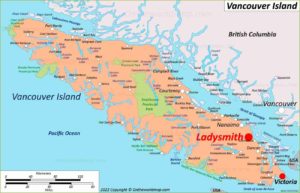
- Ladysmith-Oceanside . Adam Walker was elected as the NDP candidate in the riding in the 2020 B.C. election. For reasons that have never been revealed, Mr. Walker was removed from the NDP caucus on September 18, 2023, and since that date has sat as an Independent. Mr. Walker is running for office in 2024 as an Independent, with the endorsement of the Green Party, and the on the ground support of the party’s supporters. Stephanie Higginson, a past president of the B.C. School Trustees’ Association, is the B.C. NDP candidate. The B.C. Conservative candidate, Brett Fee, is a relative unknown. There’s also a second Independent candidate, Lehann Wallace, who is seeking the seat. The outcome in the riding is unpredictable. Ordinarily, the riding would be solidly NDP, but the candidacy of Adam Walker throws a spanner into NDP expectations for a win. This one’s gonna be a nailbiter come election night.
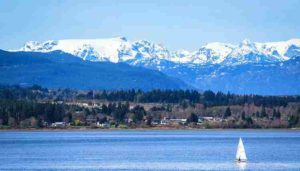
- Courtenay-Comox . Both Courtenay-Comox and North Island are in the federal riding of North Island-Powell River, where Aaron Gunn — whose claim to fame was being removed from the B.C. Liberal party leadership race in 2021 for being too far right — is the federal Conservative Party candidate. In 2017, Ronna-Rae Leonard — who is running for re-election in 2024 — won Courtenay-Comox by a hair’s breadth. For the previous two decades, the riding had been a B.C. Liberal stronghold. With support for the Green Party in the basement, political pundits suggest that Courtenay-Comox will be a tight two way race, with B.C. Conservative candidate Brennan Day set to win the riding come October 19th. Not for no reason was John Rustad front and centre in the riding on the opening day, and again on Sunday for a big rally, of Election 2024.
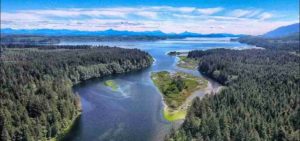
- North Island. As far as North Island is concerned, the riding oughta be another pick up for the B.C. Conservatives, their candidate physician Anna Kindy, who was an organizer with the Trucker Convoy, who brought hundreds of her future (anti-vaxx) constituents to the B.C. Legislature to protest Health Minister Adrian Dix, and Provincial Health Officer Dr. Bonnie Henry’s edicts on how to fight COVID. In a change election, the pundits’ smart money is on Dr. Kindy to put the riding in the win column for the B.C. Conservatives — who will fire Dr. Henry as a first order of business should they form government.
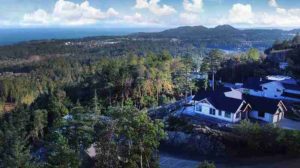
- Saanich North and the Islands. B.C. Liberal from 1991 to 2013. A bare NDP victory in 2013, with B.C. Green Party candidate, Adam Olsen — who is not running again in 2024 — securing victory in 2017 and 2020. With former Islands Trustee Rob Botterell running with the Greens, lawyer David Busch with the B.C. Conservatives and Sarah Riddell, elected to Central Saanich City Council in 2022, the B.C. NDP candidate — a riding that has voted Conservative federally for decades — it’s anyone’s guess as to the outcome of this tight three way race come election night.
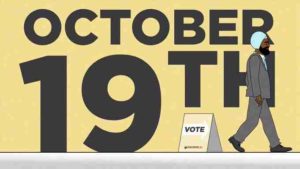
The 11 remaining Vancouver Island ridings oughta vote solidly NDP come election day. C’mon back tomorrow for more riding analysis, as we move to the Interior and the North, after which we’ll analyze Metro Vancouver and the Fraser Valley.
The Hotel Pacifico podcast will broadcast daily, Monday thru Friday, throughout the 2024 election
The good folks at Air Quotes Media’s Hotel Pacifico podcast — featuring Mike McDonald, Christy Clark’s campaign manager in 2013; Geoff Meggs, Premier John Horgan’s Chief of Staff; and Kate Hammer, a former Globe and Mail British Columbia legislative reporter — will “broadcast” on the B.C. Election each day, Monday through Friday.
VanRamblings will post the podcast, for your edification and enjoyment.

